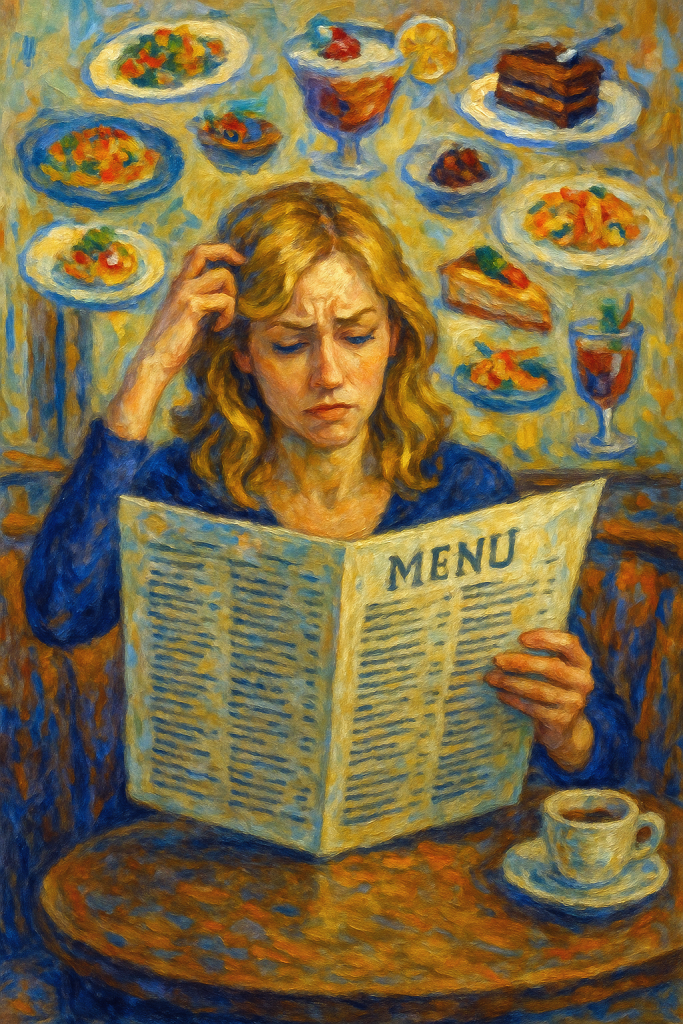
‘What do I really want?’ This enduring question of our lives may be the hardest – but answer it we must.
Last blog, I urged that ‘the only time we have is now’ – with the wide consequential meaning of ‘seize the decade as well as the day’.
It may therefore come as a surprise that I also want to talk about the benefits of knowing our limits. This is not an opposing argument. The two propositions are complementary.
We are all entitled to think differently: I hope I do not cause offence when I say, I do not believe in reincarnation. I think we get one shot at it here.
Yet during my lifetime, in my imagination I have yearned to be many things. In my childhood, a playwright, an archaeologist, a marine biologist. In my teens, a novelist, and an actor. At uni, a theatre director, a journalist. In my twenties, a novelist, a lawyer, one of the first women priests in the Church of England, a journalist. In my thirties, alongside motherhood, a poet, a freelance writer and editor.
You may detect a certain recurrence of writing ambition, albeit trying out different genres. And in the first half of my life, after a false start in law, the real-life career that I achieved for a fulfilling ten years was as a newspaper and magazine journalist, at first employed, later freelance. Some poems made it into print too.
During the second half of my life, into which I was precipitated by a mental breakdown, I felt that the value of working as an advocate and mentor alongside people struggling with their own mental and emotional wellbeing exceeded the importance of my creative output – so I switched.
Though, if I’m strictly truthful, I admit a feature of my own mental health battle was the strange belief that I was not permitted to write in case I hurt people. I’m thankful that after another period of ten years – no wonder I measure my life in decades! – this time, of inactivity as any sort of writer, I’m out of its clutches now.
I’ll always be glad for going home at the end of each day feeling I’d made a difference to someone in need – if only to keep company with that person through a difficult stage of life’s journey, being under no illusion as to my power to solve or fix anything.
But now that I am writing again, one of the reasons I gravitate towards fiction is it enables me to live more lives on the page than I can in reality. And feeling my way inside a character’s imagined life is more than just a delicious fantasy – it stretches my capacity for empathy with real human beings (and other species, animal, plant, or alien).
I’m all for it.
However, if I’m to tweak my real life successfully, I have to recognise that fiction is where the endless possibilities belong. Between its pages, I can be my dreamy childhood self – following in the fins of Jacques Cousteau, though I only learnt to swim when I was 12 and have never managed to feel at home in the ocean.
It’s in the space that separates the work and the person sitting behind the notebook and keyboard that my life-directional decisions take place. Even down to which novel to write – do I want to tell this story, or that? Let alone, is writing fiction the only thing I want to achieve in my remaining years, or does something else matter more?
Because, like it or not, wherever we are on our earthly trajectory, sooner or eventually, we’re all running out of life. Hour by hour, week by week, we don’t take note of our spending, and there’s no overdraft facility.
Not only do we have to ‘choose life’. We need to decide upon ‘the life we choose’. Ask: ‘What do I really want?’
No outright winner? There may be a compound answer, parallel paths feasible.
But edit your options. Trust yourself. Act.